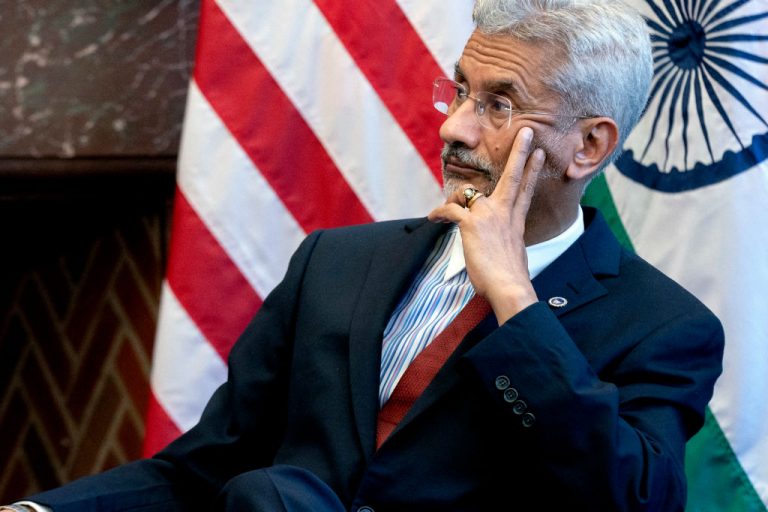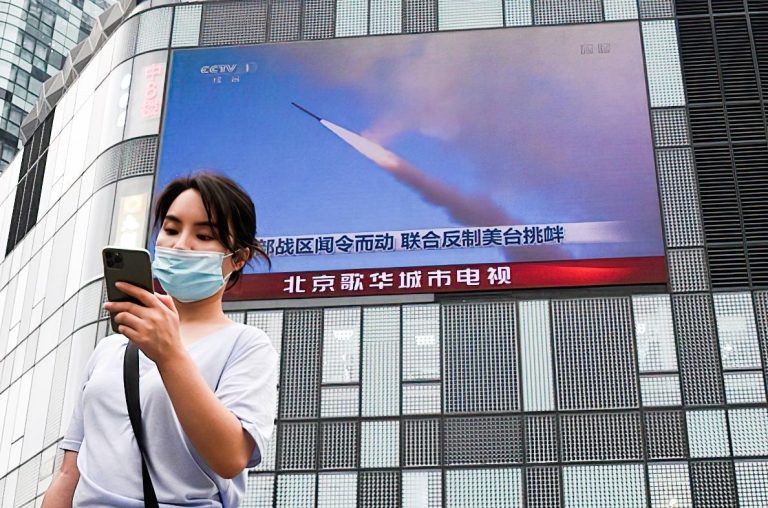Commentary
The Joe Biden Administration has obtusely put India and Prime Minister Narendra Modi on notice of its displeasure towards the world’s second-most populous country’s purchases of Russian oil.
On March 16, amid a cascade of sanctions and Western condemnation in response to the Kremlin’s war in Ukraine, India nonetheless purchased some 3 million barrels of oil from Russia at a discounted price.
Of particular note in the transaction, which at first glance sounds enormous, but comes into focus in light of the country’s daily consumption of close to 4.5 million barrels, is that the transaction may have been completed in rupee-rubles, weakening the U.S. petrodollar.
Shortly after the transaction made headlines, Biden gave an address before the Business Roundtable session in D.C. on March 23, an event whose attendees read like a who’s who of the largest corporations in America.
A table missing a leg
Success
You are now signed up for our newsletter
Success
Check your email to complete sign up
It was the same meeting where Biden declared that human society was “at an inflection point” from which a “new world order” would emerge that “we’ve got to lead … and we’ve got to unite the rest of the free world in,” one of the more important facets of Biden’s comments went widely overlooked.
While Biden assured the executives of NATO’s unwavering strength and unity in the face of Russia’s war on Ukraine, as the President started to invoke the “Quad” alliance, he conceded one of its members was not entirely on the same page.
“The Quad is — with the possible exception of India being somewhat shaky on some of this,” Biden stated in reference to Russia, before quickly adding, “but Japan has been extremely strong, so has Australia, in terms of dealing with Putin’s aggression.”
From hawks to seagulls
The Quad refers to a “quadrilateral alliance” formed between the United States, India, Japan, and Australia. While the entity was originally formed in 2007 under Obama with the theoretical purpose of keeping Communist China in check, the initiative never really got off the ground.
However, the Quad was resurrected in 2017 under the Trump Administration and former Secretary of State Mike Pompeo, convening in 2019 and 2020 where the purpose of reigning in aggressions from the Chinese Communist Party (CCP) was made loud and clear.
RELATED ARTICLES:
- Biden Admin to Allow More Ethanol in Gasoline to Ease the ‘Putin Price Hike’
- EU Parliament Hears Beijing Has a ‘Red Line’ That Russia Should Not Cross
- NATO Sets Its Gaze on Xi Jinping
During an interview with Nikkei around the time of the 2020 Quad session, Pompeo told the outlet that when it came to the CCP’s peacocking towards Taiwan, “Appeasement is not the answer.”
“If one bends the knee each time the Chinese Communist Party takes action around the world, one will find themselves having to bend the knee with great frequency. So we have pushed back in a serious way with my diplomatic counterparts,” he warned.
However, when the Quad met again, this time virtually, in March of 2021, just weeks after the Biden Administration swore its vows, the U.S.-led direction of the alliance changed completely from countering the Communist Party’s rogue influence in the Asia Pacific region to being entirely preoccupied with vaccine diplomacy, carbon climate narratives, and technocracy.
In fact, a Joint Statement issued by the White House on behalf of the four nations titled The Spirit of the Quad made no mention whatsoever of either China or the CCP.
Saber rattling
On April 6, Bloomberg reported that White House Press Secretary Jen Psaki told reporters that Deputy National Security Advisor Daleep Singh had made it clear to India “that we don’t believe it’s in India’s interest to accelerate or increase imports of Russian energy and other commodities.”
The article also reported that Brian Deese, Director of the White House National Economic Council, warned that a “more explicit strategic alignment” with Russia would result in “significant and long-term” consequences.
The posturing is not without teeth. During the week of April 8, Imran Khan, former Prime Minister of India’s closest rival and another nuclear power, Pakistan, was deposed in a sudden no-confidence vote.
Khan notably alleged that a diplomatic cable from Pakistan’s Ambassador to Washington had stated a ranking official in the State Department had told him in no uncertain terms that the Biden Administration was upset with Khan’s decision to meet with Putin just a day after the Ukraine conflict began.
The alleged cable stated that the U.S. positioned the issue such that the onus for the slight was on Khan, but that if Parliament were to remove him from power, Pakistan would be forgiven.
On April 11, the U.S. took the next step in making India hear its displeasure.
Reuters reported that Secretary of State Antony Blinken had begun “monitoring some recent concerning developments in India including a rise in human rights abuses by some government, police and prison officials.”
The posturing immediately caught the attention not only of multiple Indian news outlets and commentators, but astute western geopolitical watchers who recalled a particularly apt 2017 Memorandum issued to the newly-throned Trump Administration’s Secretary of State Rex Tillerson.
The Memo, penned by former Director of Policy Planning Brian Hook, served prima facie as a 3-page treatise on the views towards human rights and American values utilized by various Presidents since the 1940s.
However, the document’s conclusion made clear that when it comes to the human rights record of foreign adversaries, the United States is less concerned about moral and humanitarian implications than it is using the matter as a handle to apply public pressure during geopolitical chess.
“We do not look to bolster America’s adversaries overseas; we look to pressure, compete with, and outmaneuver them,” Hook stated. “For this reason, we should consider human rights as an important issue in regard to US relations with China, Russia, North Korea, and Iran.”
He added, “And this is not only because of moral concern for practices inside those countries.”
And concluded, “It is also because pressing those regimes on human rights is one way to impose costs, apply counter-pressure, and regain the initiative from them strategically.”
Holding ground
Representatives from Washington and New Delhi met for the Fourth Annual U.S.-India 2+2 Ministerial Dialogue starting April 11 where a joint statement issued by the two sides notably made no mention of Russia, China, or human rights.
The Indian Express reported that India had held its ground during the talks, quoting Minister of External Affairs Subrahmanyam Jaishankar as directly rebuking the Russia oil import hysteria “If you are looking at energy purchases from Russia, I would suggest that your attention should be focused on Europe.”
“We do buy some energy which is necessary for our energy security. But I suspect, looking at the figures, probably our total purchases for the month would be less than what Europe does in an afternoon. So you might want to think about that.”
Jaishankar continued, “We watch what’s happening in the world, like any country does, and we draw our conclusions and make our assessments. And believe me, we have a decent sense of what is in our interest and know how to protect it and advance it. So I think part of what has changed is we have more options than we did before.”













